Table of Contents
- Introduction
- Why Mathematics is Important in Computer Games
- Numbers and Scores in Games
- Shapes and Geometry in Game Worlds
- Patterns and Logic in Games
- Probability and Chance in Games
- Physics and Movement in Games
- Math Helps Game Designers
- How Players Use Math Without Knowing
- Takeaway
1. Introduction
Mathematics is everywhere in life. It is also inside computer games. Many people play games every day. Some play for fun. Some play to learn. But almost all games need math. Math helps games work. It helps players and game makers too.
The question is simple. What is mathematics in computer games? Math is the use of numbers, shapes, and rules to make games work. Every score, move, or level uses math.
2. Why Mathematics is Important in Computer Games

Math is important in games for many reasons. It makes games fair and fun. Without math, games could be too easy or too hard. Math decides how fast a character moves. It decides how strong a player is. It helps computers understand what happens next.
When you play a game, you are following rules. Rules are a type of math. They tell the game what to do in every situation.
3. Numbers and Scores in Games

Math helps computers count points. It also decides rewards. Numbers help players know if they are winning.
4. Shapes and Geometry in Game Worlds
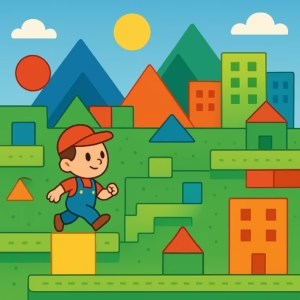
For example, a ball in a game is round. A building may be made of rectangles. Game designers use math to make shapes look real. Geometry helps characters move without walking through walls.
5. Patterns and Logic in Games
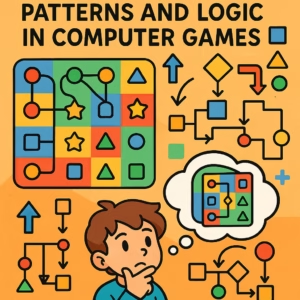
In puzzle games, patterns tell players what to do next. In strategy games, logic helps the computer think. Patterns also make games interesting. Players learn rules and strategies using logic.
6. Probability and Chance in Games
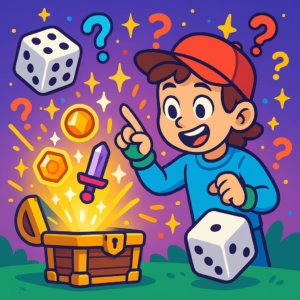
For example, a treasure chest may give a rare item. Probability decides the chance of getting that item. Dice games in computers use probability too. It makes games unpredictable but fun.
7. Physics and Movement in Games
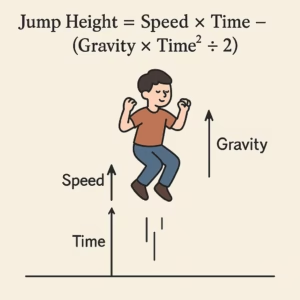
When a ball bounces in a game, math calculates the angle. When a car turns, math calculates the curve. Physics makes games feel real. Without math, movement would look strange or wrong.
8. Math Helps Game Designers

Designers use math to balance games. Without math, games could be unfair. Math also helps computers run games faster.
9. How Players Use Math Without Knowing
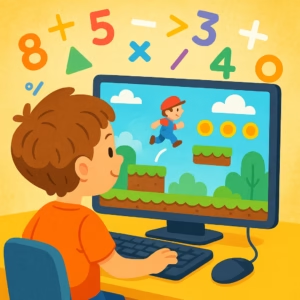
For example, in a platform game, a player jumps to reach a platform. They judge distance and speed. This is simple math in action. Even playing casually helps the brain learn math.
10. Takeaway
Mathematics is the backbone of computer games. It is in numbers, shapes, patterns, chance, and movement. Game designers and players both use math.
When you ask what is mathematics in computer games, it is the rules and calculations that make games work. Math makes games fun, fair, and exciting. Every game you play uses math in some way.
Understanding math in games can help players play smarter. It can also inspire young people to learn math. Computer games are more than fun. They are lessons in math hidden behind the screen.